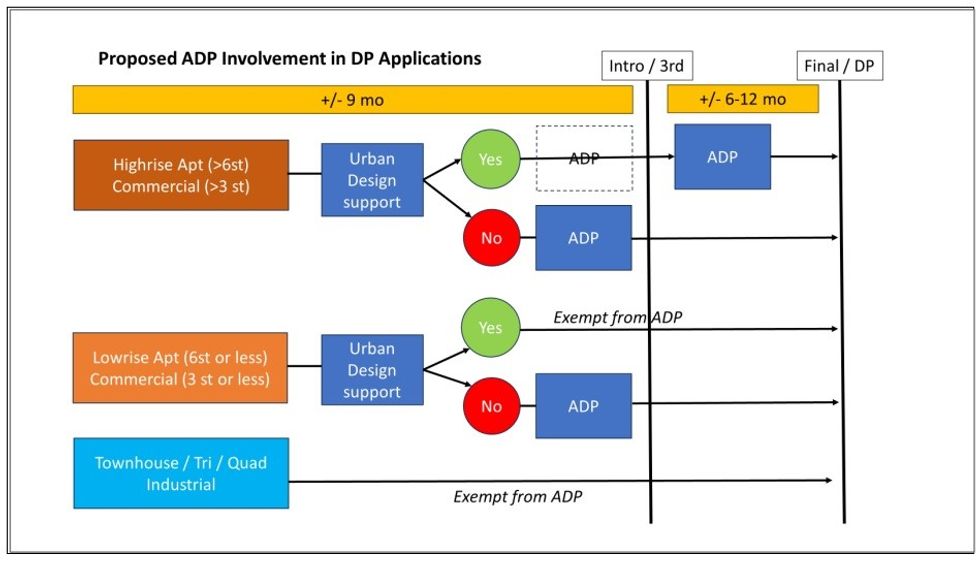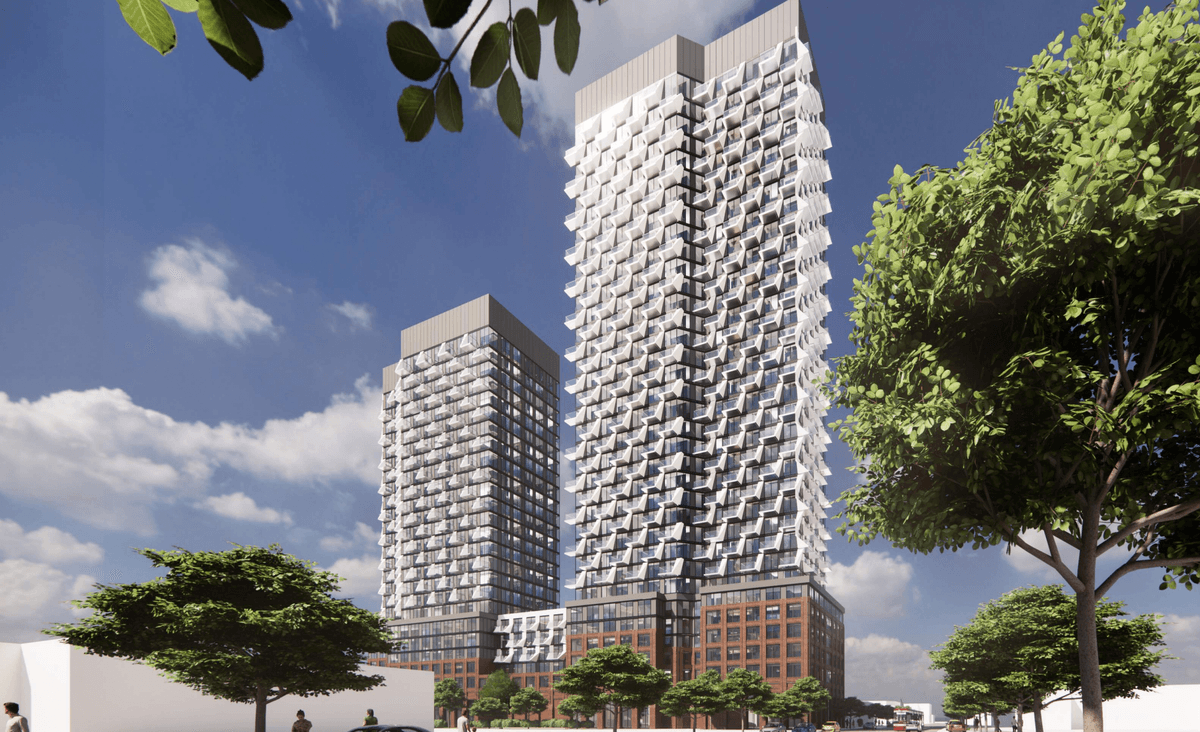Last week, shortly before the Christmas break, Surrey City Council approved changes to how it processes development applications and the role of the Advisory Design Panel in an attempt to help expedite the delivery of much-needed housing.
The City of Surrey's Advisory Design Panel (ADP) was first created in 2009 and consists of a group of appointed volunteer experts that assess development applications with a focus on design form and character.
The ADP currently consists of 19 members — eight architects, three landscape architects, two developers, two experts in sustainable design, two experts in accessibility, one expert in heritage preservation, and one member of the Surrey RCMP — and looks at all development applications with a floor space ratio (density) of over 0.5 or a size of over 20,000 sq. ft.
"The intent of having an ADP is to ensure a high standard of urban design is maintained that reflects best practices in the fields of architecture and landscape architecture in the region and to balance the review by City staff with third-party, private-sector advice," said City staff in a report earlier this month.
However, the ADP assesses between one and three development applications per meeting and meets just twice per month, which can significantly hinder timelines and the speed at which applications can be approved — and, subsequently, construction and completion.
With the now-approved changes, however, the ADP will no longer be looking at development applications where the proposed building is a residential building that's six storeys or less, or a commercial building that's three storeys or less.
Development proposals for buildings over those heights will also now have an option to be scheduled for ADP review either before the proposals are introduced to Council or after Council grants the application a third reading, at the applicant's discretion.

The changes will allow applications to move through the City faster and with more flexibility, although the applications will still be first assessed by the City's internal urban design staff. If City staff are not in support of the application, the ADP will then serve as a second opinion ahead of the application being formally recommended to Council.
In its announcement last week, the City of Surrey said that it expects the changes — along with the exemption of townhouse and industrial projects from urban design review that was previously-approved — to reduce the amount of projects that go through the ADP by between 60% to 70%, which will cut several months from approval timelines.
"With these changes, Council is making it faster and easier to go through the development process," said Councillor Pardeep Kooner, who introduced multiple motions in recent months that resulted in these changes. "We recognize the challenges that long wait times and complicated application processes present, which is why we will continue to look for new and innovative ways to find efficiencies and simplify the process."
"With the housing crisis in mind, this Council is taking steps to speed up our development application timelines," added Mayor of Surrey Brenda Locke. "I thank our dedicated staff for working quickly to find solutions that will help significantly reduce processing times, while not compromising urban design outcomes. These changes will result in homes being built faster, and in turn, better meet our growing community's vital need for new housing."





















